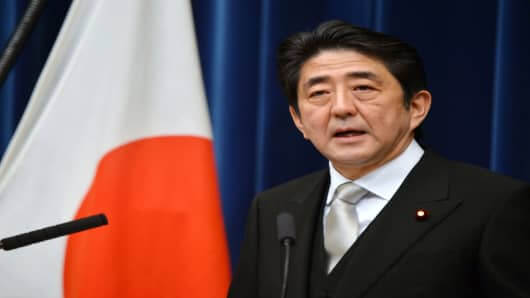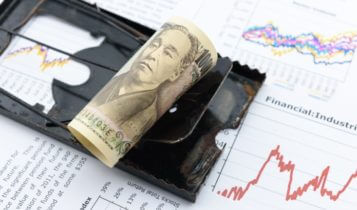
Abenomics: BOJ to Ditch Price Goal, says Advisor
An economic advisor to Japanese Prime Minister Shinzo Abe and his so-called “Abenomics” says that the Bank of Japan (BOJ) can ditch its 2 percent inflation goal since consumers would prefer having lower prices. The BOJ could also temporarily halt efforts.
Even though current inflation hovers near 1 percent, the BOJ’s monetary easing policies have been successful in creating jobs and boosting wages for temporary workers, according to Koichi Hamada. Hamada is among the minds behind the Japanese premier’s Abenomics stimulus program.
“Prices don’t need to rise much. From the perspective of people’s livelihood, what more desirable is for prices to fall, not rise,” said Hamada.
Hamada also said that the central bank’s 2 percent inflation target “can be abandoned” since it “isn’t absolutely crucial.”
The statement emphasizes the changes of people’s outlook toward the BOJ’s radical monetary program that was started by Governor Haruhiko Kuroda in 2013. Kuroda was among the first three proponents of the Abenomics program.
Kuroda has pledged that the bank would achieve 2 percent inflation level in two years with a huge amount of monetary stimulus. This was done to curb years of deflation and economic stagnation.
However, now that the job market is tight enough, the inflation target could be left behind. It would be useful “only as a tool for achieving full employment.” In spite of that, Hamada also said the BOJ did not need to ditch the inflation target immediately since it could act as a “safety valve” when the job market deteriorates again.
“Since the world economy faces substantial turbulence, the BOJ can wait (in changing) its policy stance,” Hamada said. Meanwhile, he added that the bank didn’t need to boost stimulus either. “Demand is exceeding supply now. As long as this trend continues, we don’t need to worry too much.”

Tax Increases
Meanwhile, Hamada said that increasing taxes shouldn’t be put off anymore given the state of the jobs market.
“If Japan cannot raise the sales tax when the job market is as favorable as now, it’s hard to see when it can raise the tax,” he said.
On one side, the Japanese central bank is facing dried up market liquidity due to years of heavy money printing, which has also narrowed down commercial banks’ profits. On the other hand, subdued inflation has made BOJ lag behind US and European peers in scaling back crisis-mode policies. In January, annual core consumer inflation was 0.8 percent.
Critics argue that the monetary policy should be longer-term goal that allows for some reservations to address the side-effects of prolonged easing, or shelve the 2 percent target altogether.
Kuroda has ignored these criticisms, insisting that targeting a 2 percent level of inflation was the global standard for central banks worldwide.




